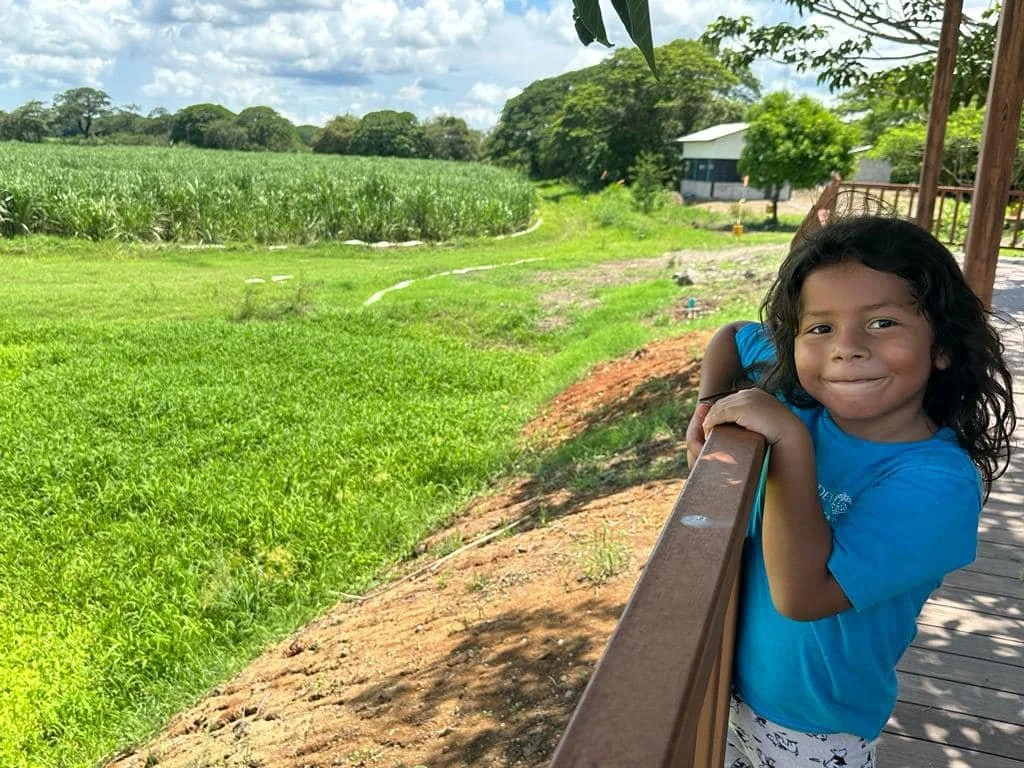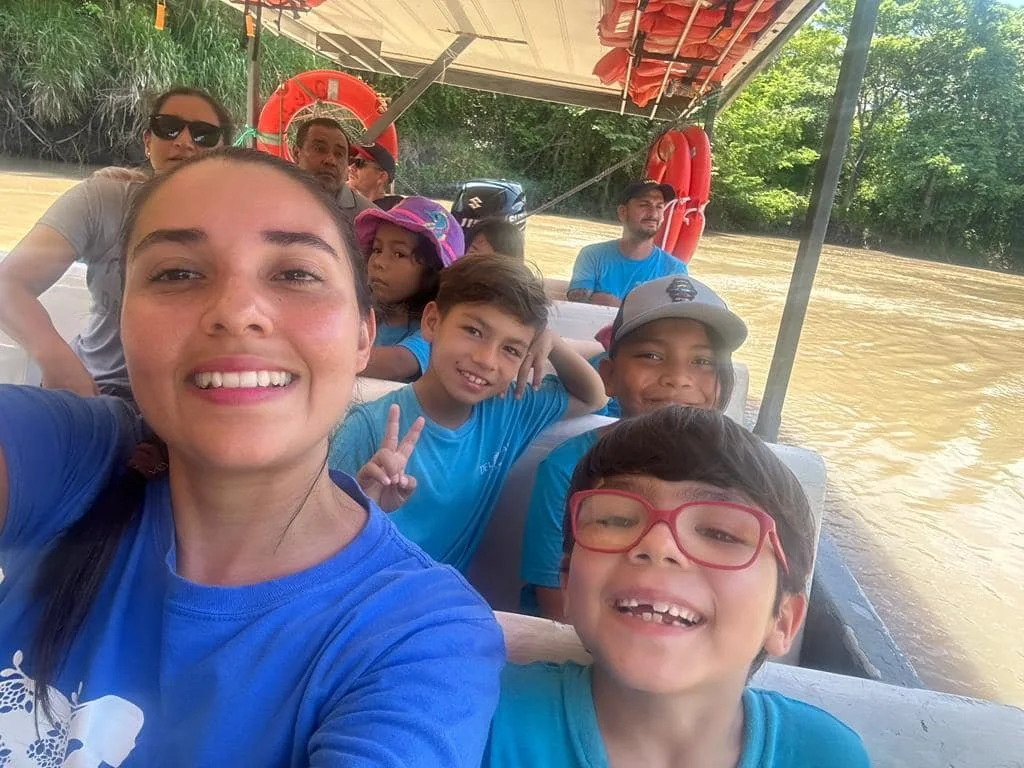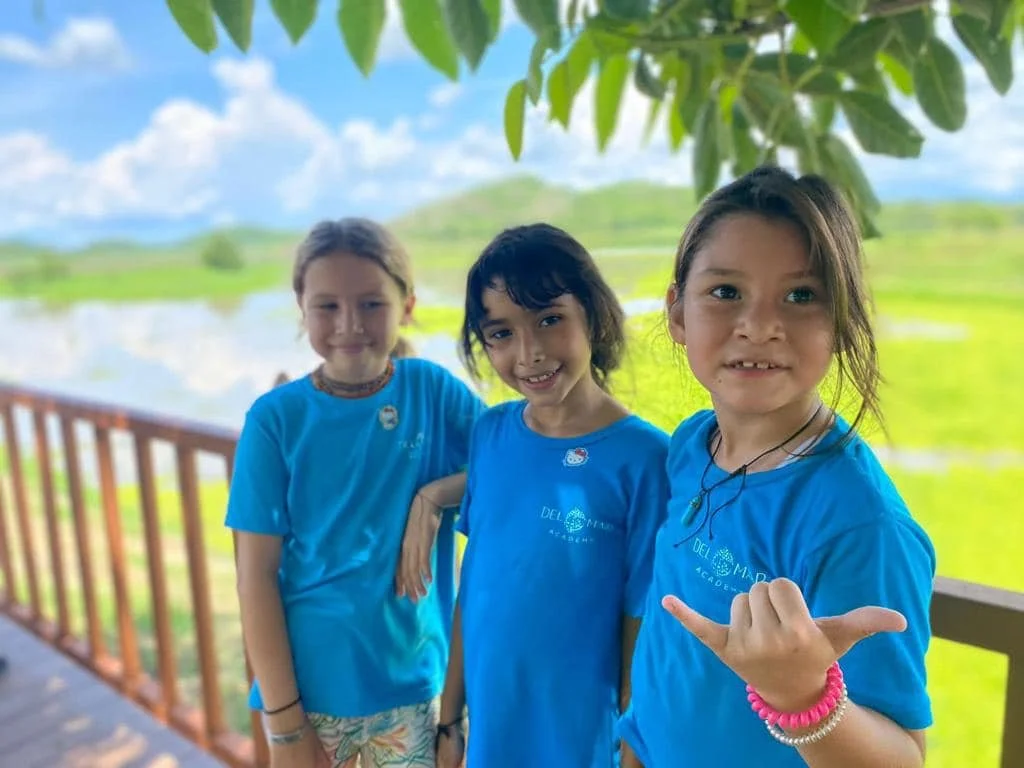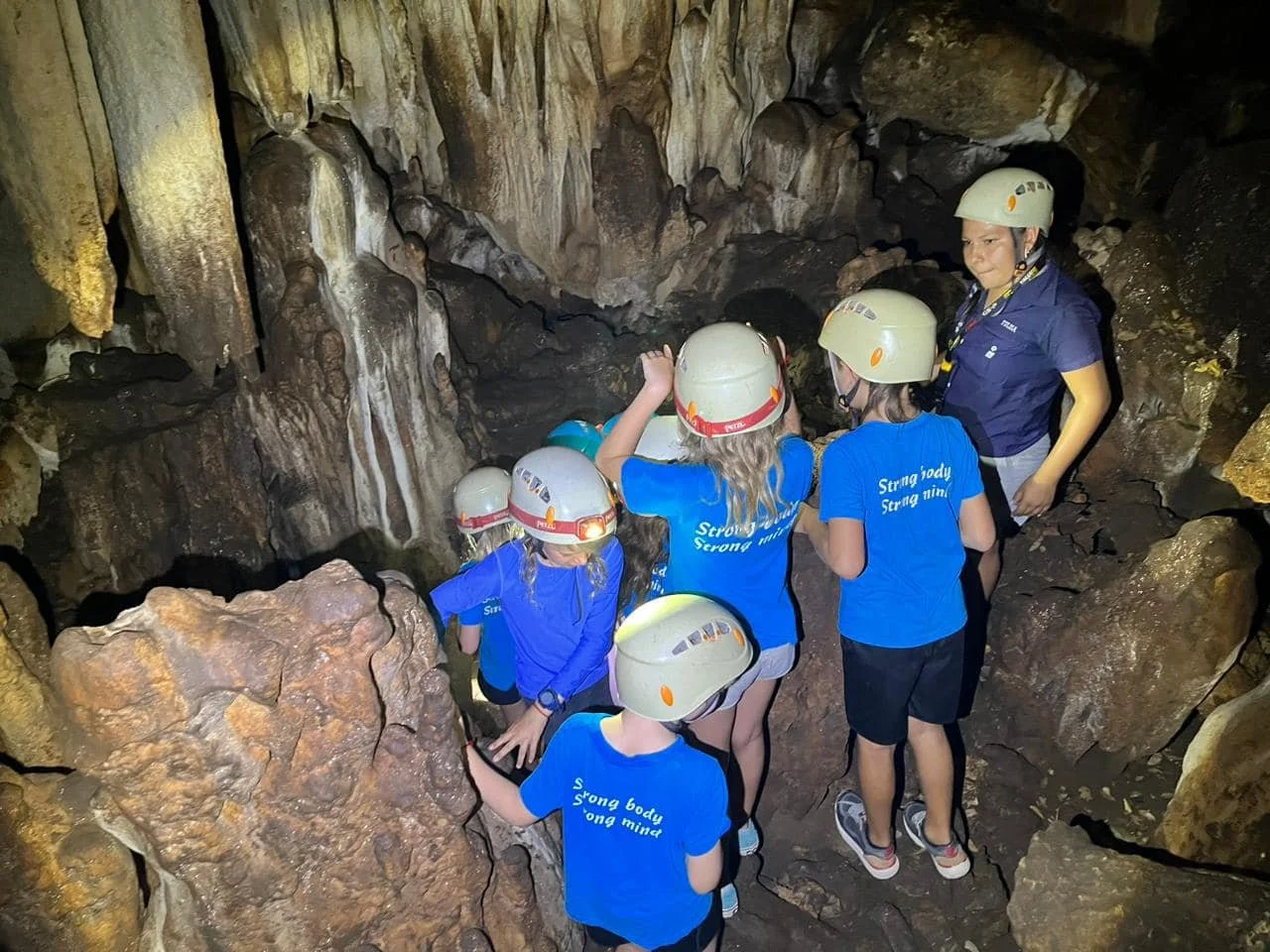
A Montessori School Between the Jungle and the Sea
At Del Mar Academy, our bilingual Montessori program offers a hands-on learning environment where students grow at their own pace, develop independence, and explore the world through meaningful, child-led experiences - all in an international school that is fully accredited by the Costa Rican Ministry of Education (MEP).
Children in our pre-K and kindergarten program, called Casa, build foundational skills through exploration and purposeful play. Practical life, sensorial work, language, and math materials help them develop concentration, coordination, and confidence. Our Lower Elementary program for grades 1 through 3 expands academic exploration and deepens critical thinking. Children explore language, mathematics, science, history, and geography through projects, stories, and hands-on materials. Environmental awareness and care for self and others are central to daily life.
A Nurturing Montessori Foundation for Early Learners
Our Casa and Lower Primary classes are led by certified Montessori teachers and supported by dedicated assistant teachers, ensuring that each child receives individualized attention and guidance. Following Montessori principles, students learn in mixed-age environments - ages 3–6 in Casa and Grades 1–3 in Lower Primary - where younger children are inspired by older peers and older students develop leadership and mentoring skills. Our learning environment allows children to feel seen, cared for, and supported as they develop independence, confidence, and a love of learning.
Key Learning Areas
-

Language
Phonics, reading, writing, and storytelling in both English and Spanish build students’ understanding of language.
-
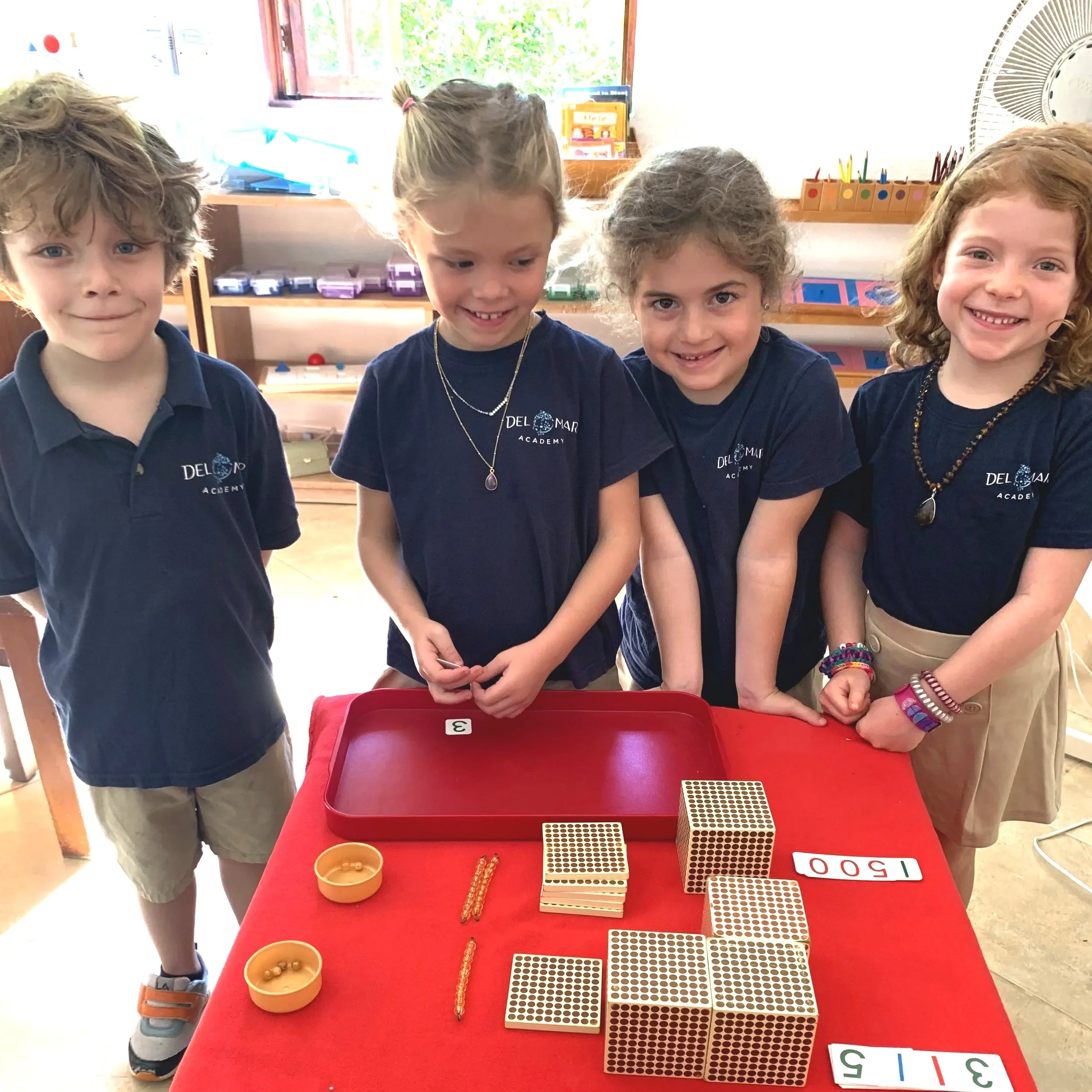
Mathematics
Hands-on materials help students easily and joyfully assimilate the many facts and skills of arithmetic.
-

Sciences
Children develop a natural interest in the sciences by studying botany, zoology, earth science, astronomy, and more.
-

Geography and Culture
Exploring other countries’ customs, geography, food, music and languages builds understanding and connection.
-

Environmental Studies
Students explore nature on our campus and during field trips, fostering an understanding of ecological interdependence.
-

Physical Education
P.E. and movement programs on our 11 acre campus help build coordination, concentration, and social skills.
-
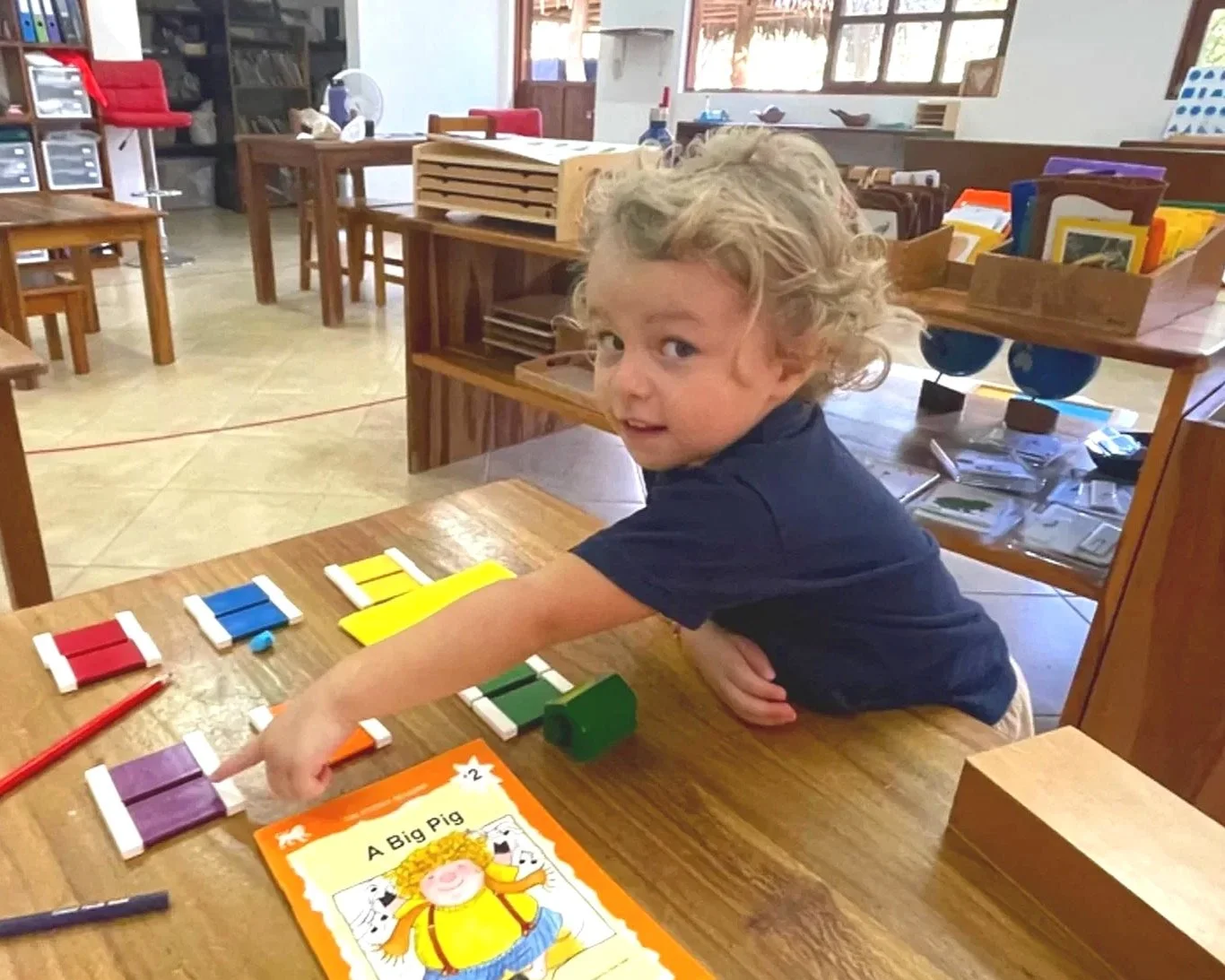
Sensorial Exercises
Sensory materials help students connect new and existing information, which Dr. Maria Montessori saw as a first step toward conscious learning.
-

Swimming and Water Safety
Swim lessons and water safety are taught at an early age by certified instructors at our full-size, on-campus pool facilities.
-

Arts
Art encourages creative expression, allowing students to explore ideas and emotions through a variety of mediums.
-

Practical Life
Students care for themselves, others and their environment, practice using grace and courtesy and prepare meals and snacks.
-
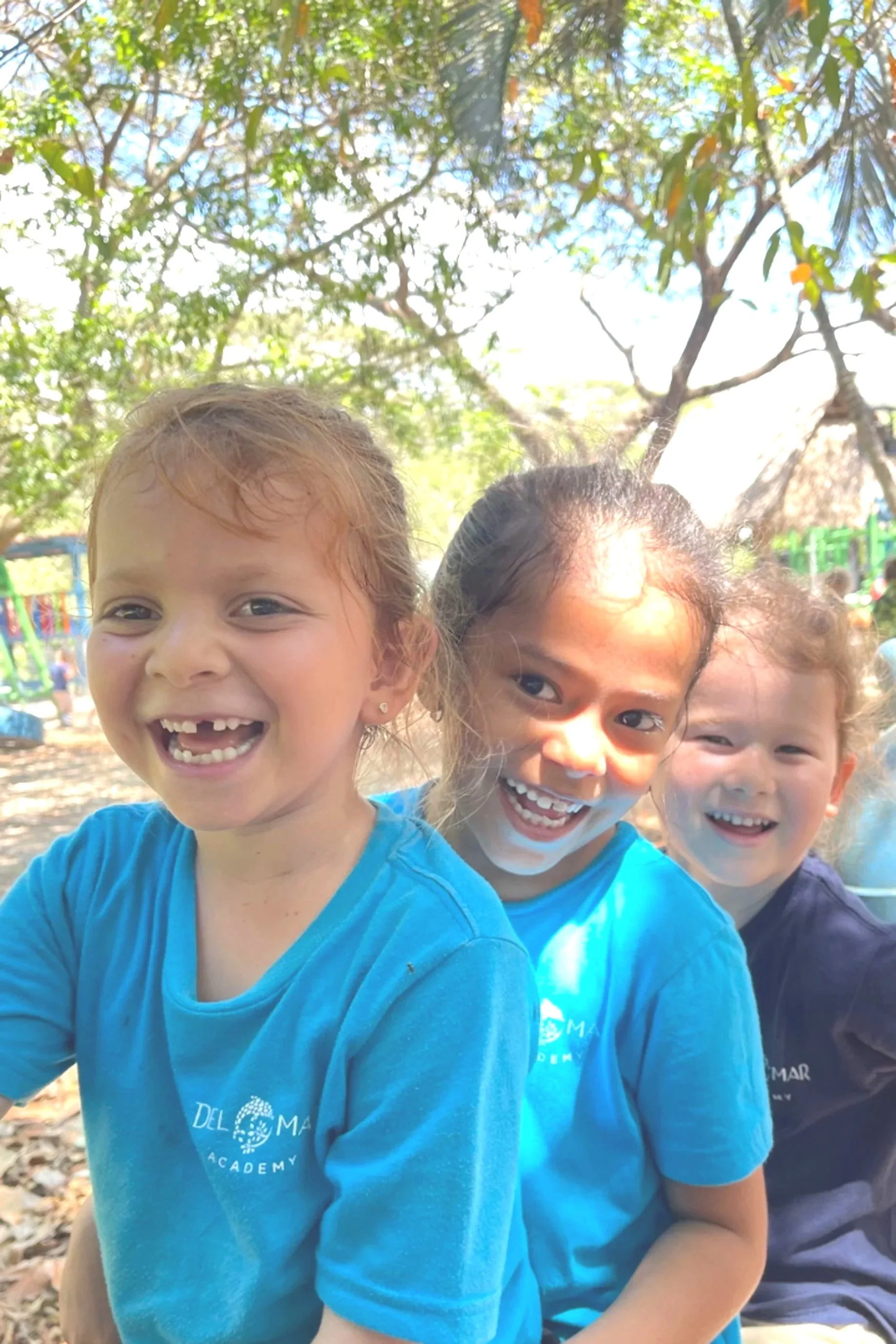
Peace Education
Working and playing together, students learn conflict resolution, nonviolence, leadership, cooperation and effective communication.
-

Community Service
Even our youngest students learn that community service is an important part of life, if we want to change our world for the better.
The Importance of Montessori Principles in Today’s Education
Current research emphasizes the importance of not just feeding children countless amounts of information, which is accessible at the touch of a button, but instead giving them the life skills to help prepare them for our ever-changing future. Children today need to be knowledgeable in research, good citizenship, adaptability, compassion, time management, tolerance of differences and interpersonal relationships. Dr. Maria Montessori was ahead of her time. Almost 100 years ago, she believed that these skills should be a basis for every child’s learning.
Learning Beyond the Classroom: Day Trips in Costa Rica
Field trips are an essential extension of our Montessori elementary program, offering hands-on experiences that deepen the students’ connection to the world around them. Guided by their teachers, children explore Costa Rica’s rich natural environment and culture - visiting beaches, forests, farms, and local communities - to spark curiosity, build social skills, and apply classroom learning to real-life contexts. These carefully designed outings nurture independence, responsibility, and a sense of wonder, while keeping safety and care at the heart of every experience.


